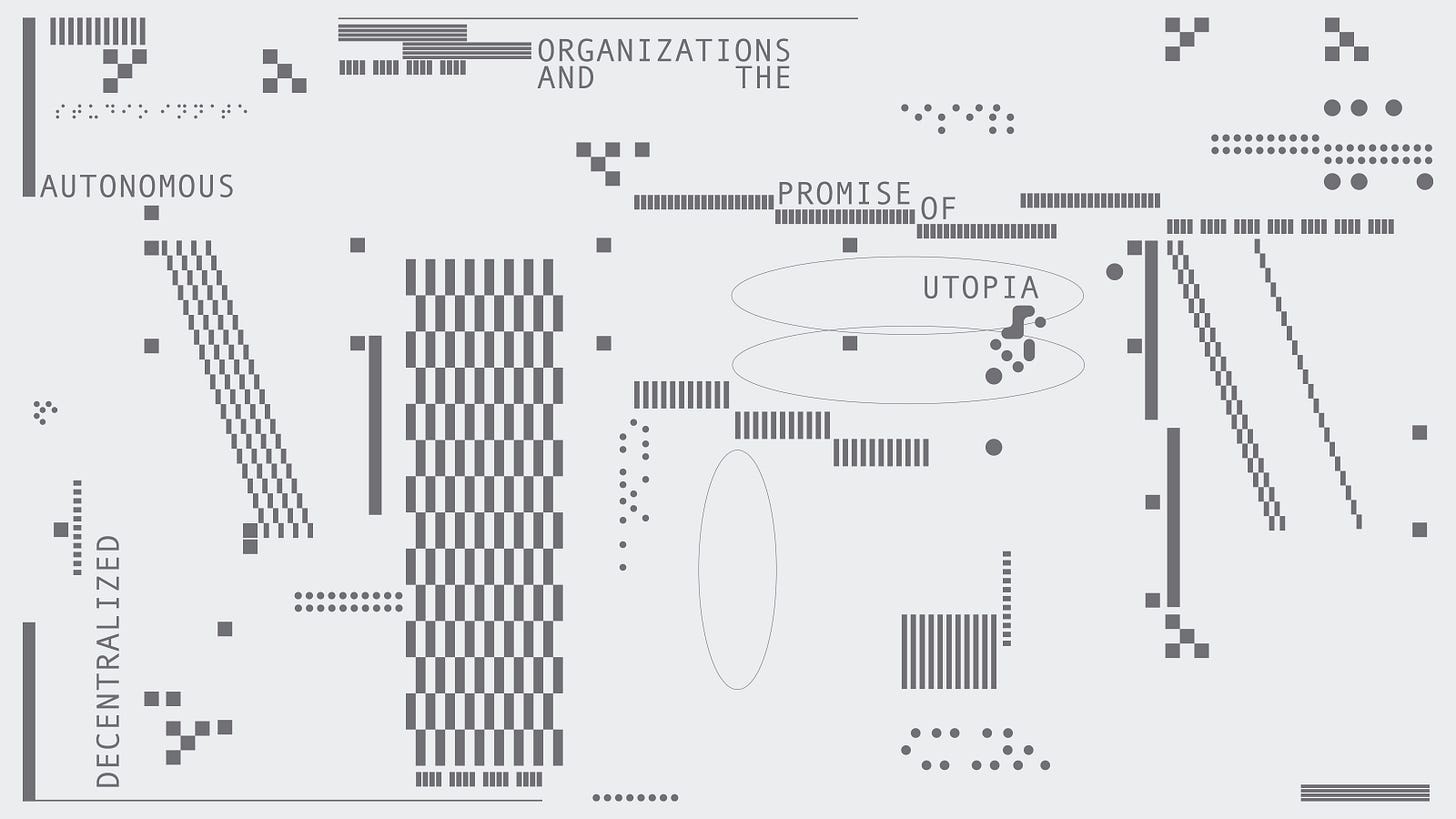Transmission #20: Philosophy of infrastructure, DAOs with benefits, asteroid spotting and seeking a hevruta.
Design, ideas and other flotsam.
Hello. Welcome.
This is Transmissions by me, Martin Brown. Father. Husband. Design Lead at Craig Walker, sometime lecturer at RMIT and elsewhere. Marty to most.
This is an ongoing fortnightly newsletter that collates some of the more interesting stories, links, quotes and other curios that float my way.
If you’re new here, then sign up now to get more of these in your inbox, and don’t forget to tell your friends!
Design
Care at Scale: Bodies, agency, and infrastructure.
Debbie Chachra, Comment
A tender and beautiful essay exploring how infrastructure binds us together. Chachra makes the argument that good infrastructure – which we in developed countries take almost entirely for granted – is a essential provider of freedom. Unshackling us from the mundane, it’s infrastructure that allows us to tap into the collective ingenuity of our species.
Alone in my apartment, when I reach out my hand to flip a switch or turn on a tap, I am a continent-spanning colossus, tapping into vast systems that span thousands of miles to bring energy, atoms, and information to my household. But I’m only the slenderest tranche of these collective systems, constituting the whole with all the other members of our federated infrastructural cyborg bodies.
It’s the kind of essay that’s breathlessly zooming in and out, from the personal to the prophetic, across geographies of thought, time and of the world. Particularly relevant is the notion of the ultrastructure: the social systems that surround and shape our infrastructure.
We need to have a conception of infrastructural citizenship that includes a responsibility to look after each other, in perpetuity. And with that, we can begin to transform our technological systems into systems of compassion, care, and resource-sharing at all scales, from the individual level, through the level of cities and nations, all the way up to the global.
Highly recommended.
Ideas
Decentralized Autonomous Organizations and the Promise of Utopia
Andrew Ryce, Resident Advisor
This article outlines some of the possibilities that artists and musicians are finding through new forms of governance, enabled by new technologies: decentralised autonomous organisations, or DAOs. The story profiles the DAO ‘Friends With Benefits’, which to the uninitiated might look something like a particularly tight-knit collective, or a scene. But where scenes have a loose, collectivist mindset that may or may not one day grow into something commercial, DAO’s have codified rules baked in, and are financialised from the get go.
History should tell us that promises of utopia are both seductive, and fraught with danger, as the hidden kinks in the system eventually yield to exploitation, in some form or another. But the reason that DAOs hold their appeal is that for many musicians, survival in the incumbent music and arts industries, riddled with rent-seeking middlemen, looks increasingly untenable. DAOs offer a new and tantalising way to thrive as creators.
If this all sounds utopian, it is—the potential seems infinite and the only limits are in your imagination, but imagination is different from reality. The Web3 world is still a ways off from establishing its new, collectivist system and for now it remains mostly potential. And many things that seem exciting about DAOs like Friends With Benefits are something of a double-edged sword. After all, there is no insurance. The DAO makes its own rules and abides by its own rules only, with an obvious potential for exploitation or theft in the wrong hands.
Quotes
Somehow, in a million ways, large and small, the city got off the canvas and started slugging away at the forces that had previously appeared to be inexorable. The Bad/Good situation led to a massive spark of artistic creativity in sketchy neighborhoods like the dirty, dangerous East Village, where punk musicians and proto-hip-hop scenesters were literally reinventing our notion of what music could be.
– Review of New York, New York: Unimaginable, sometimes almost uninhabitable; and without question, the Greatest City on Earth, describing how utterly hopeless it all seemed in New York in the 1970s. And yet…
– From a Yom Kippur sermon by Rabbi Angela Buchdahl. (source, ht @JonHaidt)
Chart of the Week
(ht @SteveStuWill, source)
Other
🔭 In a week where in my city of Melbourne there was simultaneously a) a pandemic, b) a city-wide lockdown, c) a series of riots, and d) the biggest earthquake in 200+ years – this article came as some reassurance. We are, most likely, able to spot an impending asteroid collision well before it hits Earth, and – even better – we should be able to do something to avoid it. Link
🚔 Like a tale straight from a spy thriller: how criminals around the world flocked to a specially encrypted phone and message service, only to find that someone was listening the whole time. Link
✊ The always intriguing Tyler Cowen on wokeism, and why it may be a net-positive cultural export to the world. “The relevant comparison is not “woke vs. what I believe to be best,” but rather, “woke vs. a lot of the other crazy stuff people are going to believe if they weren’t woke.” Link
🚢 Supply chain weirdness megathread. Link
💌 Funny story of how a writer got addicted to penning fake letters to an ‘agony aunt’ columnist. Link
📣 And a wistful elegy to advertising as a creative medium. (Of which the abysmal campaign for Visa, above, is a telling example.) Link
Till next time!







